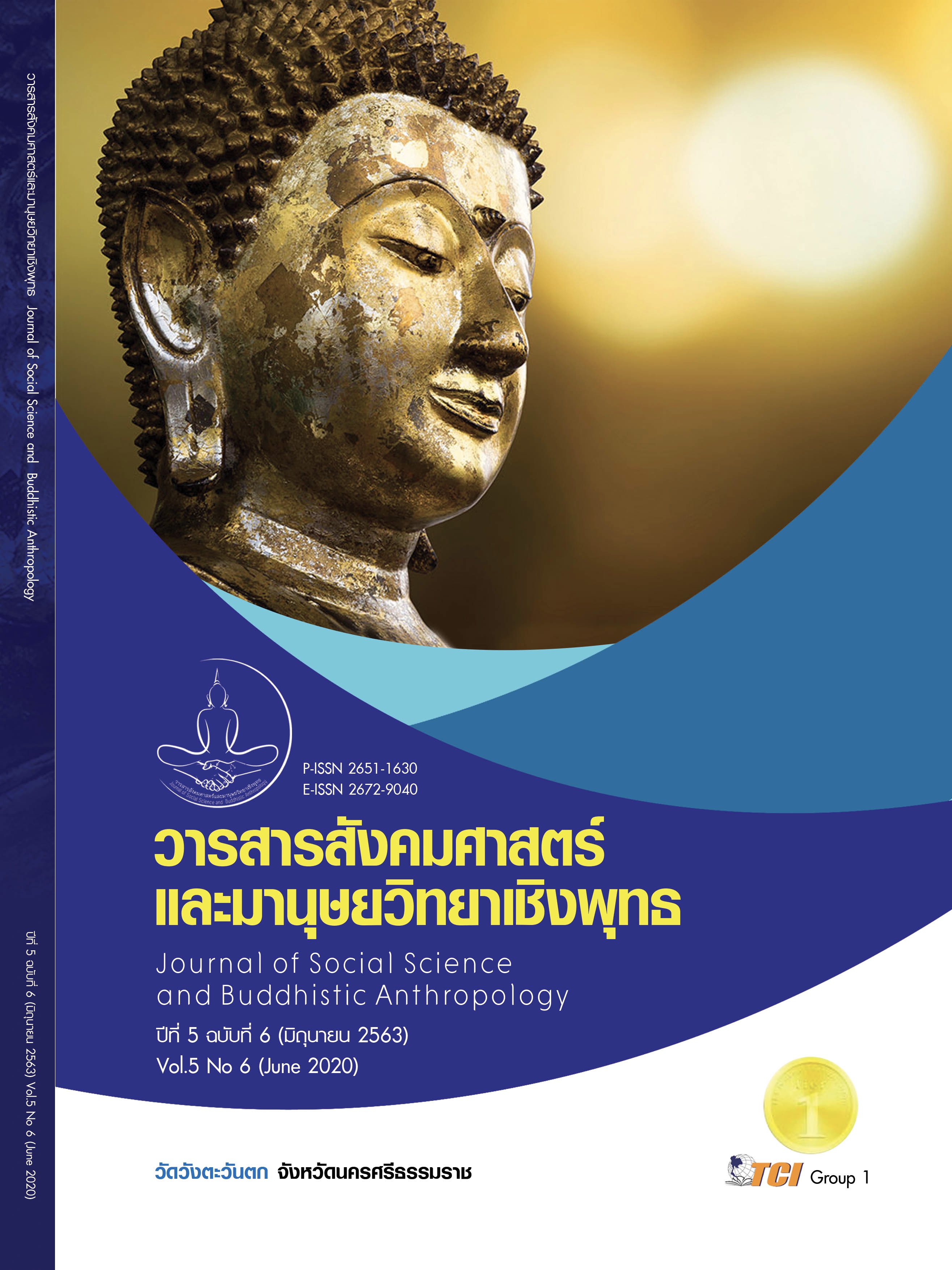TEACHER DEVELOPMENT MODEL OF STUDENT SELF - MANAGEMENT IN ACCORDANCE WITH THE SUFFICIENCY ECONOMY PHILOSOPHY OF WAT KU SAMAKKEE SCHOOL NAKHONRATCHASIMA PRIMARY EDUCATIONAL SERVICE AREA OFFICE AREA 6
Keywords:
Teacher Development Model, Self - Sufficient Learning Management, Primary, Sufficiency Economy PhilosophyAbstract
This research has objectives to Develop a model of teacher development in student self - management in accordance with the sufficiency economy philosophy of Wat Ku Samakkee School. NakhonRatchasima Primary Educational Service Area Office, Area 6 And evaluation of the use of teacher development model in student self-management in accordance with the sufficiency economy philosophy of Wat Ku Samakkee School. NakhonRatchasima Primary Educational Service Area Office, Area 6 with Informants, School administrators, teachers, students, parents . with the total number of 120 persons. The research tools were as follows : Semi-structured Interviews, Observation, teacher development manual, test, self-reliant learning plan. Satisfaction Satisfaction Questionnaire . The statistics used in the research were percentage, mean, deviation, descriptive Statistics. The results of the study revealed that the teacher development model of student self-management in accordance with the sufficiency economy philosophy of Wat Ku Samakkee School. NakhonRatchasima Primary Educational Service Area Office, Area 6 consists of 16 steps as follows: 1) Best Practice Education 2) Meeting to clarify and understand the research participants 3) Create awareness and initiatives 4) Search for patterns and resources, motivation for the research team 5) Defining the focus on internal development 6) Creating a teacher development manual 7) Examination and improvement of the teacher development manual 8) Developing teachers to be able to analyze, synthesize autonomous learning curricula 9) Make a self-reliant learning management plan and manage real-life learning 10) Drafting achievement indicators meeting 11) Meeting for improvement of success indicators 12) Data collection of learning outcomes 13) Linking and transferring knowledge 14) Assessing the success of Operate 15) Evaluation and reflection 16) Conclusion, exchange, learn and expand And the evaluation of the teacher development model in student self -management in accordance with the sufficiency economy philosophy of Wat Ku Samakkee School Source: NakhonRatchasima Primary Educational Service Area Office, Area 6, Overall, the highest level: ( = 4.56)
References
กลุ่มนิเทศ ติดตามและประเมินผล. (2560). รายงานประเมินตนเองของสำนักงานเขตพื้นที่การศึกษาประถมศึกษานครราชสีมาเขต 6 ปีการศึกษา 2560. นครราชสีมา: สำนักงานเขตพื้นที่การศึกษาประถมศึกษานครราชสีมาเขต 6.
ฉลาด จันทรสมบัติ. (2551). การวิจัยปฏิบัติการแบบมีส่วนร่วมเพื่อพัฒนาชุมชน. มหาสารคาม: อภิชาตการพิมพ์.
ทิศนา แขมมณี. (2553). ศาสตร์การสอนองค์ความรู้เพื่อการจัดกระบวนการเรียนรู้ที่มีประสิทธิภาพ. กรุงเทพมหานคร: จุฬาลงกรณ์มหาวิทยาลัย.
นรินทร์ สังข์รักษา และคณะ. (2551). ผลดีของการประยุกต์ใช้หลักปรัชญาเศรษฐกิจพอเพียงในกระบวนการ เรียนรู้และการจัดการความรู้เพื่อการพัฒนาที่ยั่งยืนของวิสาหกิจชุมชน: ศึกษากรณีจังหวัดราชบุรี. ใน การวิจัยขยายผลสู่ชุมชน. สำนักงานคณะกรรมการวิจัยแห่งชาติ.
บุญชม ศรีสะอาด. (2556). การวิจัยเบื้องต้น. (พิมพ์ครั้งที่ 8). กรุงเทพมหานคร: สุวีริยาสาส์น.
สมาน อัศวภูมิ. (2549). การบริหารและการจัดการศึกษาของพื้นที่การศึกษาประเทศสหรัฐอเมริกาและประเทศอังกฤษ. ใน รายงานการวิจัย. สำนักงานคณะกรรมการการศึกษาแห่งชาติ.
สำนักงานคณะกรรมการการศึกษาขั้นพื้นฐาน. (2562). แนวทางการจัดการเรียนเป้าหมายโลกเพื่อการพัฒนาที่ยั่งยืน. วารสารวิชาการ สำนักวิชาการและมาตรฐานการศึกษา, 22(4), 2-3.
สุดาวรรณ เครือพานิช. (2551). การเรียนในวัยเด็กสำนักงานคณะกรรมการศึกษาขั้นพื้นฐาน. วารสารวิชาการ สำนักวิชาการและมาตรฐานการศึกษา, 8(5), 56-57.
Homsin, N. (2014). Using Knowledge Management for Developing primary School Students' Public Mind in Thailand. International Journal of Education and Research, 2(10), 551-566.
Ramasut, T. (1997). Participatory Operational Research. Bangkok: P.A. Livings Printing.









